Description
Latin Name: Salix babylonica
Hardiness Zones: 6-8
Common Names: Weeping Willow, Babylon Willow Mature Size: This tree typically reaches heights of 65 to 85 feet (19.8 – 25.9 meters) with a similar spread. It features a sturdy trunk and a broad crown with branches that gracefully droop towards the ground. The roots spread shallowly and widely (Missouri Botanical Garden).
Soil and Climate Requirements: Salix babylonica tolerates a range of soils and climates, preferring well-drained, moderately wet soil over dry conditions (Missouri Botanical Garden). It thrives in full sun or partial shade and is native to arid regions of northern China. While it grows best in moist soil, it can also adapt to sandy or heavy clay soils (Plants for a Future).
Notes: This tree is tolerant of black walnut and fost (Missouri Botanical Garden). It is a fast-growing species but typically lives less than 75 years. Its foliage turns yellow in autumn. Pruning, if necessary, should be done from late winter to early spring (Missouri Botanical Garden). The bark is typically dark brownish-gray, and branch tips are often green or brown (Missouri Botanical Garden). Flowers appear from April to May in inconspicuous, silver-green catkins about 1 inch long. Leaves are approximately 6 inches long and ¾ inches wide, finely toothed, light green on top, and green-gray underneath. They turn yellow-green in autumn. The tree’s wide, shallow root system and flexible stems and branches make it suitable for basket making. It is not self-fertile and relies on bees for pollination (Plants for a Future).
Potential Issues: The wood is prone to cracking due to its weakness. Weeping willows are susceptible to diseases such as leaf spots, powdery mildew, blights, and cankers, as well as pests like scale, lacebugs, and caterpillars (Missouri Botanical Garden).
Wildlife Value: Provides food for beavers, rabbits, and deer.
For more information, visit:
- Missouri Botanical Garden: [link]
- Plants for a Future: [link]
Additional information on Salix babylonica can be found on the link: USDA / NRCS PLANTS Database.

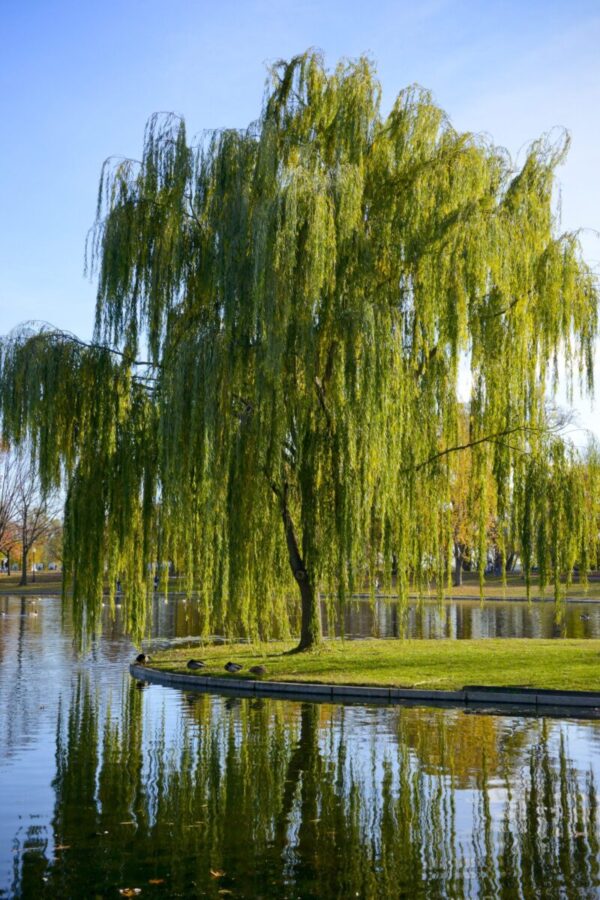
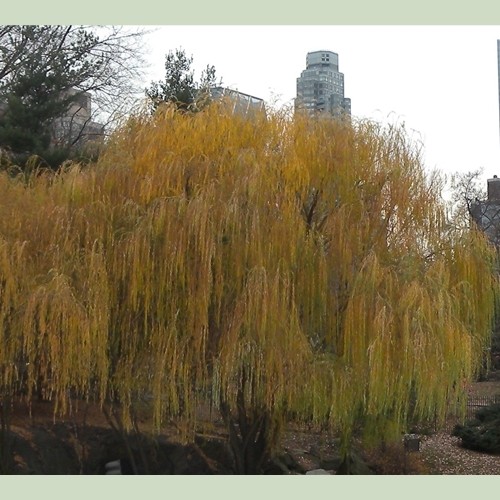

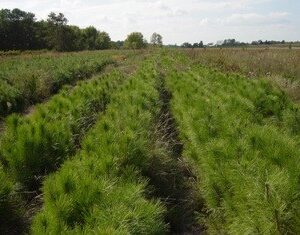

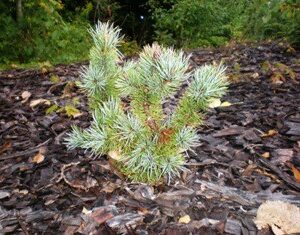
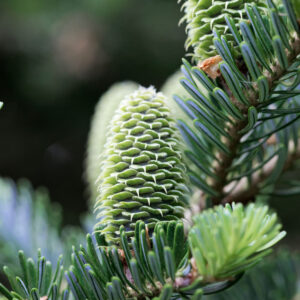
Reviews
There are no reviews yet.